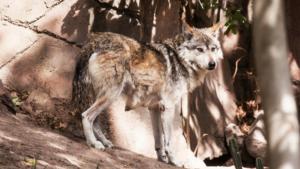For immediate release – August 13, 2020
Media contact:
Cyndi Tuell, Western Watersheds Project (520) 272-2454
TUCSON, Ariz. –– In response to Western Watersheds Project’s January 2020 appeal of a Bureau of Land Management (BLM) grazing decision for the Lizard and Wolfhole allotments in northern Arizona, the agency has voluntarily withdrawn its bad plans and pulled the decision. The group appealed the project because it failed to adequately consider the impacts of installing new fences, water catchments, and storage tanks, and chaining native vegetation, in violation of the National Environmental Policy Act.
“BLM’s attorneys finally realized the project was legally indefensible and pulled the decision without wasting any more time,” said Cyndi Tuell, Arizona and New Mexico Director for Western Watersheds Project. “It’s too bad that the agency didn’t listen to us in 2012, 2013, and 2018 when we commented on their ill-conceived plans.”
The proposed water storage tanks would have captured tens of thousands of gallons of surface water for livestock use, pumping it across the desert to far flung allotments,and allowed the agency to mow down sagebrush, pinyon pines, and junipers with mulching, chipping machines and chemical herbicides. Despite repeated requests, BLM failed to analyze the project’s impacts on the regional hydrology and other impacts associated with water developments, including target shooting, trash and debris.
The allotments are on public lands north of the Grand Canyon Parashant National Monument, which are the traditional homelands of the Pueblo people and Southern Paiute. The project area provides habitat to desert bighorn sheep, mule deer, pronghorn, the California condor, and the Mohave desert tortoise.
“We are hopeful that BLM will realize the benefits of pinyon, juniper, and sagebrush to the wildlife that call these lands home outweigh the livestock industry’s desire to turn a profit,” said Tuell. “These are valuable wildlife habitats that need to be conserved, not intentionally destroyed.”
###






